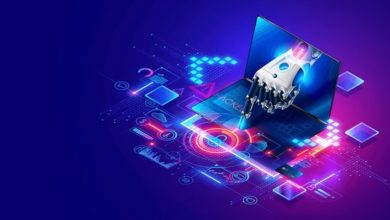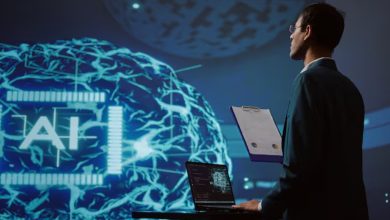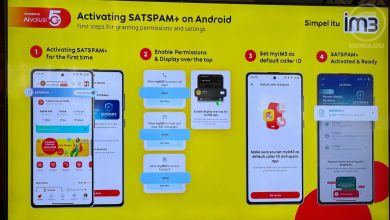The Top 5 Cybersecurity Keys to Maintain Business Continuity and Customer Confidence

In recent months, cyber-attacks received by hospitals in the United States have been publicized, placing the issue of cybersecurity under public scrutiny once again. These types of attacks and other breaches in data privacy represent a threat not only for the institutions that were attacked, but also for patients and staff working in these hospitals, because sensitive or personal data may be exposed.
Approximately a quarter of the companies that had experienced a cyberattack in 2022 have lost between 50 thousand and 100 thousand dollars; another 22% of the companies reported that they had lost between 100 thousand and 500 thousand dollars. In addition, the costs of rescuing compromised information increase by 144% every year. These statistics and the rising risks, highlight the importance of strong cybersecurity practices to keep any organization protected.
According to the World Economic Forum, a company requires 280 days to identify and respond to a cyber-attack, which would represent about nine months of actions to contain it, while at the same time it must act to protect the public image of the company and maintain the trust of users.
“It is crucial for companies to invest in cybersecurity services to protect their digital assets, sensitive data, and critical infrastructure. A company facing a cyber-attack may experience severe economic losses due to disrupted operations, recovery costs, legal liabilities, and potential lawsuits. The company’s reputation may suffer, leading to customer distrust, decreased sales, and diminished market value. Additionally, regulatory penalties and compliance issues can further compound the economic and legal consequences,” said Sven Nowak, Head of Cybersecurity at TÜV Rheinland North America.
Therefore, TÜV Rheinland presents 5 key cybersecurity practices to maintain business continuity and safeguard customer trust:
- Identify industry risks: Knowing whether the company belongs to an industry that is highly prone to cyber-attacks will make it possible to establish an appropriate and effective action plan that facilitates responding to a situation. Industries that are most prone to cyber-attacks include healthcare, finance, government, energy, and manufacturing sectors. These industries handle sensitive data, possess critical infrastructure, and are attractive targets for cybercriminals seeking financial gain, disruption, or espionage.
For instance, hackers have taken an interest in IoT medical devices due to the valuable patient data they hold, and the potential for disrupting critical healthcare services or exploit vulnerabilities in connected devices for financial gain or to cause harm. Medical devices often have security gaps and outdated software, making them attractive targets for cybercriminals.
“At TÜV Rheinland we deliver quality services by implementing robust security measures throughout the development lifecycle. This includes conducting thorough security assessments, adhering to established cybersecurity standards, encrypting data, incorporating secure authentication and access controls, and fostering collaboration with cybersecurity experts to identify and mitigate vulnerabilities,” emphasizes John McDonald, Practice Lead Cybersecurity at TÜV Rheinland North America.
- Recognize the main threats: The most common cyber-attacks faced by companies include phishing attacks, ransomware attacks, Distributed Denial of Service (DDoS) attacks, insider threats, and data breaches resulting from vulnerabilities in networks, applications, or human error.
- Know the trends in cybersecurity: “It is essential for companies to stay informed about trends in cybersecurity to be prepared for any situation. In the coming years, organizations should have an increased focus on securing IoT devices, because the more connected devices there are, the more ‘doors and windows’ open for possible attacks. It is estimated that by the end of this year there will be more than 40 million IoT-connected devices in the world, which leaves us with a huge gap to secure,” said McDonald.
Other trends that will emerge in the coming years include improved integration of security measures within control systems, advancements in AI and ML-driven threat detection and response, stricter regulations and compliance standards, and greater collaboration between cybersecurity professionals, manufacturers, and regulators to address emerging threats.
- Invest in security measures: To ensure the safety of industrial IoT, companies should implement measures such as network segmentation, access controls, regular vulnerability assessments and patch management, strong encryption protocols, continuous monitoring, incident response plans, and regular audits of security controls.
Global spending on cybersecurity services is expected to be more than $200 million in 2023, up 12% from 2022, driven by ongoing threats, cybersecurity requirements to maintain remote working, and the need to comply with international data protection regulations and standards. Therefore, it is critical to remember that while it is an investment for companies, having the peace of mind that it has the practices and actions in place to react appropriately is priceless, as companies without cybersecurity services are more vulnerable to breaches, leading to potential financial, operational, and reputational damages.
- Train employees and involve Cyber leaders in business decisions: Keeping employees trained on the main threats and cyberattack alerts can prevent serious incidents that could lead the company to a crisis. For example, according to the Global Economic Forum, only 37% of companies surveyed for the Global Cybersecurity Outlook in 2022 stated that they had the people and skills they need today to respond to a cyberattack, so it is essential to increase that number within organizations.
Likewise, cybersecurity leaders must be included in business decisions, to avoid having risks and threats, since they are an essential part of the organization. This will enable the implementation of cybersecurity resilience, which translates as the ability of an organization to anticipate, recover from, and adapt to any hazards and threats to its cyber resources.
TÜV Rheinland has a global portfolio of IT security services ranges from strategic consulting to conception and process optimization to implementation, and operation. To this end, the experts conduct, among other things, cybersecurity tests, industrial security audits, and data protection audits for the Internet of Things (IoT) and cloud infrastructures. TÜV Rheinland operates a global network of more than one hundred laboratories worldwide, in which all cybersecurity and data protection tests can be carried out for manufacturers from a single source.
In this way, cybersecurity has become a priority for companies around the world, regardless of their sector, because without constant investment and commitment, organizations become more vulnerable to cyber-attacks of various kinds, and are therefore more likely to suffer reputational, financial, operational, and even business closure consequences.
To help Medical Devices companies, TÜV Rheinland designed a seminar to provide in-depth knowledge and practical skills related to the development, compliance, and safety aspects of electrical-based medical devices sold in the USA and the European Union (EU). Register here to join us: TÜV Rheinland Seminar | July 11 & 13 Medical Device Lunch & Learn Seminar (tuv.com)
To learn more, visit Cybersecurity – rethinking security, shaping the future | US | TÜV Rheinland (tuv.com).




